Lorenzo Boyd—who he is and where he wants to take the university
Amid the Black Lives Matter movement, Steven Kaplan, UNH president, announced the school had hired Lorenzo Boyd as vice president for diversity and inclusion and chief diversity officer. Some students disapproved, and some are beginning to change their opinions. Boyd says he’s hopeful that during his time at the university, he can build bridges.
Boyd grew up in Boston, attended the University of Massachusetts for his bachelor’s and master’s degrees, and attended Northeastern University for his doctorate.
As a classically trained sociologist, Boyd looks at relationships and interactions between people. He spent 14 and a half years at the sheriff’s department in Boston. When he left in 2001, he became a university professor and began researching policing — specifically urban policing — and the relationship between the police and communities of color and other underrepresented communities.
Boyd still trains police officers, specifically with community policing, police in fragile communities, and building bridges between the police and community.
After his work at other universities, in 2019 Boyd was hired at the university to work as a criminal justice professor and in the Center for Advanced Policing.
“The job description…is pretty fluid because it came about based on a history of problems between or among student groups, particularly underrepresented students,” said Boyd.
Boyd said that his job is to build an inclusive atmosphere at the university. He also oversees inclusion with all faculty and staff.
“I try to identify barriers that are going to stop Chargers from being great, and I try to help eliminate those,” said Boyd. “Hopefully, if I’m good, I can eliminate the barriers before people come up against them.”
There has been a history of problems at the university, so now Boyd is trying to find groups that have faced problems in the past, talk to them, and figure out how to fix the problems for the future.
Boyd said that some student groups tell him that he should know their problems without having to tell him.
“To me, that’s not fair; that’s not realistic. I don’t know what everybody’s problem is, and I can’t assume that one particular group has any problem in particular, because people are different, interactions are different,” he said.“So, I want to find out what the issues are, and as soon as I find out the issues, I try to put resources into it to fix these issues.”
Boyd said he believes he is a great fit for the position.
“Ultimately, it’s about fixing problems, building bridges, and making things easier for people—and for the last 20 years, that’s what I’ve been doing,” he said.
“It’s not realistic to think that my job is just a university job, because we don’t exist just as a university — we’re part of a bigger picture,” said Boyd.
Boyd says he hopes to accomplish a lot with students and staff members, specifically with awareness, and that a lot of employees and students don’t understand the issues other people are facing.
“Before we can move forward, we have to understand the pain that people are facing,” said Boyd. “We have to understand the obstacles that they are facing.”
Boyd is also trying to build a three-year plan at the university. It would start with fixing some of the current problems at the university, such as the amount of gender-inclusive bathrooms on campus and racial tensions, among others.
Boyd also said he wants to fix a lot of the issues in the classroom. This begins with a diversity, equity, and inclusion audit programs that they will first try in the school of health sciences such as in syllabi, curriculum, class offerings, and others to make sure it’s as inclusive as it can be.
Boyd also said his position is more than a race position — it’s about finding barriers in any area and getting rid of it.
“I look for hurdles that stop chargers from being great,” he said.
There are a lot of plans in the works. Currently, the Henry C. Lee college is debuting the Uncommon Course, which are multiple classes under the UNIV 1141 section. Boyd said that this course is taught by professors from multiple schools in the university, not just Lee, in hopes that there will be multiple viewpoints on the same issues.
Boyd also has plans to create a diversity training badge system.
“After ‘x’ number of diversity or social events, you’ll get a badge, and these are things that we can put on a transcript,” he said.
Because of COVID-19 restrictions, Boyd said that the program is on hold. Boyd said he hopes to start with online micro-trainings in the meantime.
The university is also working on minority hiring in faculty and staff. This includes people of color, but also people of different genders, religions, ages, and more, he said.
Other plans include rewriting the Transgender Faculty and Staff Guide (created with SPECTRA, PRIDE, the dean of students office, and the Myatt Center for Diversity and Inclusion), working with student groups to search for a new head of the Myatt Center, introducing himself to student groups and asking for their ideas, and building affinity groups for faculty and staff.
“Our main objective is to help empower students,” said Boyd, “so whether you’re in the classroom, or in an office, or driving a bus, our job should be supporting students.”
Boyd said he recognizes that some students are still wary. He hopes that he can improve relations with them.
“My hope is that I’m going to be judged on the work that I’ve done or the changes that people see,” he said.
Boyd said it’s unrealistic to think he will be the one person who fixes everything. He also said that he recognizes that not everybody will approve of that and said he respected it.
“[My job] is to support people in what they do,” said Boyd. “I don’t do their jobs, but I give them support and resources to make sure their jobs are more inclusive.”
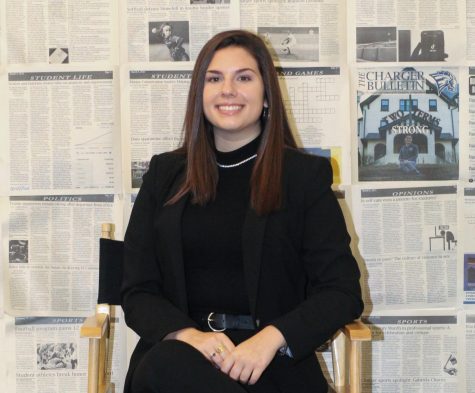
Kayla Mutchler is a senior studying communication double concentrating in journalism and digital media. She joined The Charger Bulletin as a staff writer...

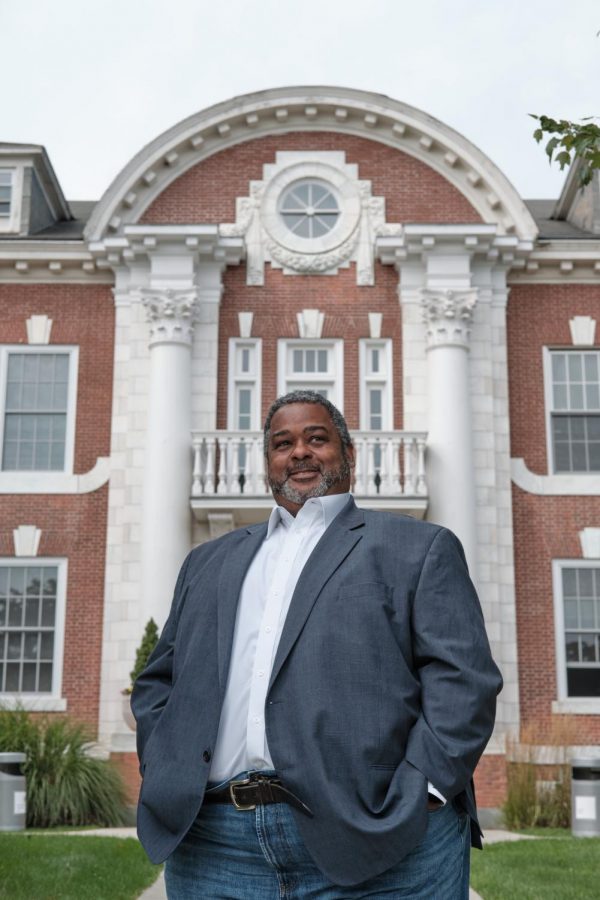
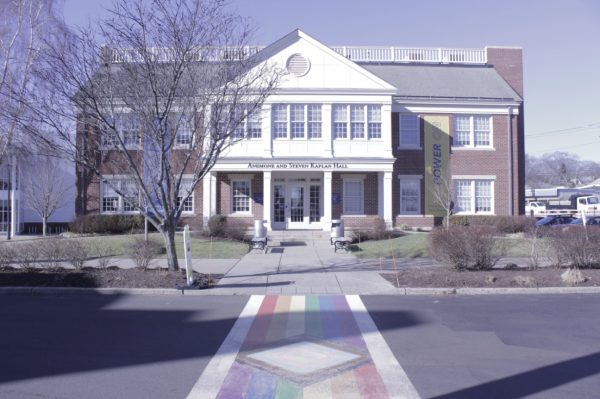

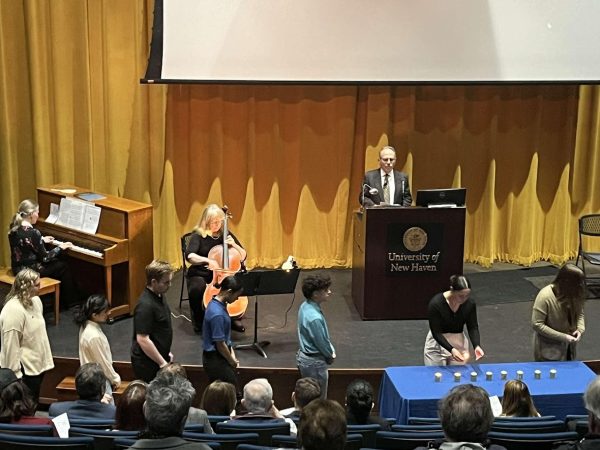
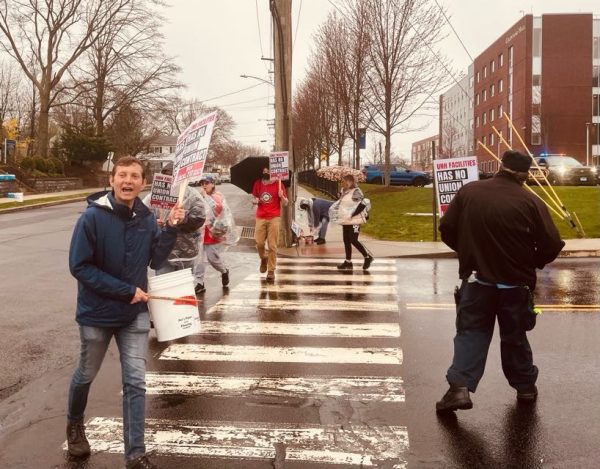






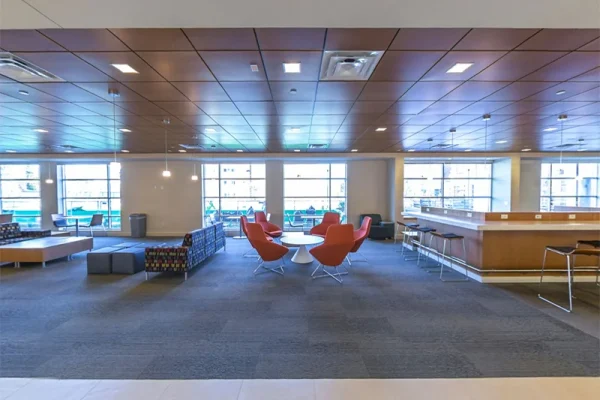


Dr. JD Warren • Dec 14, 2020 at 11:04 pm
They are fortunate to have you. I’m sure you will do great things there.